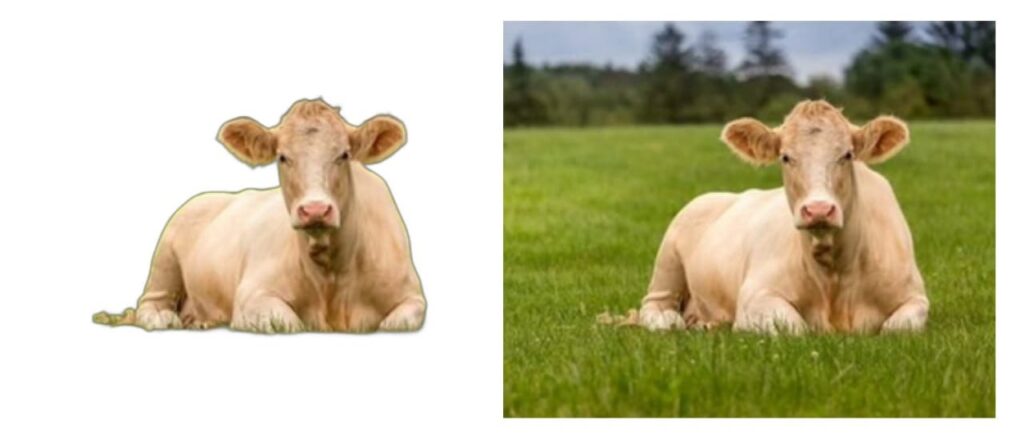How to Remove the Background of an Image Using Python: A Step-by-Step Guide
Removing the background from an image is a common task in various applications, from graphic design to computer vision. While numerous tools and software can accomplish this, Python offers a programmatic way to perform background removal efficiently, especially when dealing with multiple images. In this guide, we will walk you through the process of removing the background of an image using Python, leveraging the powerful libraries OpenCV and NumPy.
Table of Contents
Introduction
Background removal is an essential technique in image processing that allows you to isolate the main subject from its surroundings. This can be particularly useful in creating transparent images or focusing on specific objects in a dataset. In this tutorial, we’ll use Python to automate this process, making it adaptable for various use cases.
Prerequisites
Before we start, make sure you have the following installed:
- Python 3.x: Ensure you have Python installed on your machine.
- OpenCV: A library for image processing.
- NumPy: A fundamental package for numerical computations in Python.

Step 1: Install Required Libraries
If you haven’t installed OpenCV and NumPy yet, you can do so using pip:
pip install opencv-python numpyStep 2: Load and Display the Image
First, we need to load the image we want to process. We’ll use OpenCV’s imread function to load the image and imshow to display it.
import cv2
# Load the image
image = cv2.imread('image.jpg')
# Display the image
cv2.imshow('Original Image', image)
cv2.waitKey(0)
cv2.destroyAllWindows()Step 3: Convert Image to Grayscale
To simplify the background removal process, we convert the image to grayscale. This helps in distinguishing the foreground from the background based on intensity.
# Convert the image to grayscale
gray = cv2.cvtColor(image, cv2.COLOR_BGR2GRAY)
# Display the grayscale image
cv2.imshow('Grayscale Image', gray)
cv2.waitKey(0)
cv2.destroyAllWindows()Step 4: Apply Thresholding
Thresholding helps in separating the foreground from the background by converting the grayscale image to a binary image.
# Apply a binary threshold to the image
_, thresh = cv2.threshold(gray, 150, 255, cv2.THRESH_BINARY)
# Display the thresholded image
cv2.imshow('Threshold Image', thresh)
cv2.waitKey(0)
cv2.destroyAllWindows()Ambulance Booking System Using PHP MySQL Comprehensive tips
Step 5: Find and Draw Contours
Contours represent the shape of objects in the image. We will find the contours of the foreground object.
# Find contours
contours, _ = cv2.findContours(thresh, cv2.RETR_EXTERNAL, cv2.CHAIN_APPROX_SIMPLE)
# Draw the contours on the original image
cv2.drawContours(image, contours, -1, (0, 255, 0), 3)
# Display the image with contours
cv2.imshow('Contours', image)
cv2.waitKey(0)
cv2.destroyAllWindows()Completing Your College Project on Time step-by-step
Step 6: Create a Mask for Background Removal
We will create a mask from the contours to isolate the foreground.
# Create a mask of zeros (same dimensions as the original image)
mask = cv2.zeros_like(image)
# Fill the mask with the foreground object
cv2.drawContours(mask, contours, -1, (255, 255, 255), thickness=cv2.FILLED)
# Display the mask
cv2.imshow('Mask', mask)
cv2.waitKey(0)
cv2.destroyAllWindows()Library Management System Using Object-Oriented Analysis and Design
Step 7: Apply the Mask to Remove the Background
Finally, we apply the mask to the original image, effectively removing the background.
# Convert mask to grayscale
mask_gray = cv2.cvtColor(mask, cv2.COLOR_BGR2GRAY)
# Apply the mask
foreground = cv2.bitwise_and(image, image, mask=mask_gray)
# Display the final result
cv2.imshow('Foreground', foreground)
cv2.waitKey(0)
cv2.destroyAllWindows()Chapter 4: Variables and Data Types in Python
Conclusion
By following these steps, you can remove the background from an image using Python. This approach is versatile and can be adapted for various images and use cases. Whether you are working on a personal project or need to process images in bulk, Python offers a powerful and efficient solution for background removal.
- Complete Python Course : Click here
- Free Notes :- Click here
- New Project :-https://www.youtube.com/@Decodeit2
- How to setup this Project Complete video – Click here
🎓 Need Complete Final Year Project?
Get Source Code + Report + PPT + Viva Questions (Instant Access)
🛒 Visit UpdateGadh Store →